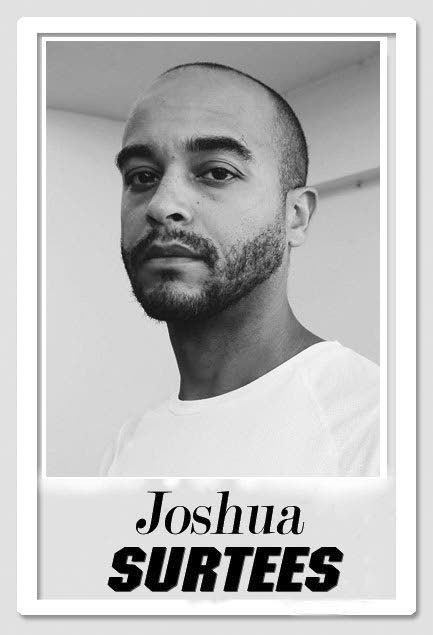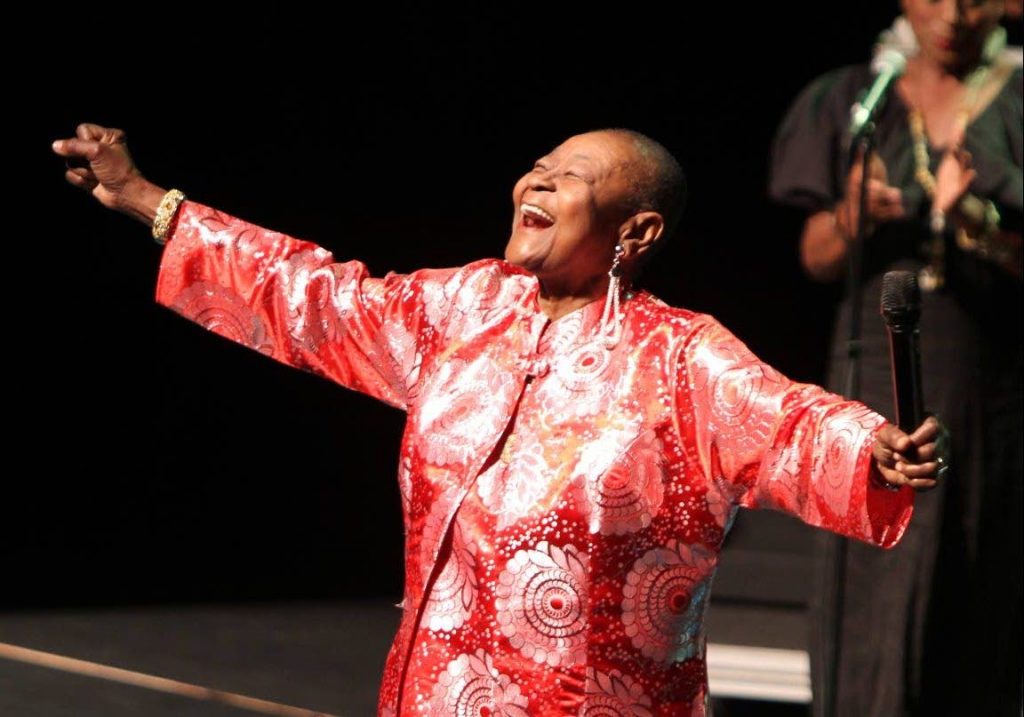Calypso Rose, an icon for LGBT Caribbean

Calypso Rose on the Coachella bill is a watershed moment. Rose is a national treasure and we’re proud to have her representing on that uber-hip stage. She’s one of the kindest, funniest, most endearing music icons I’ve met. But there is an important part of her unique personhood her management team doesn’t want her to talk about – the fact that she’s gay.
When I tried to talk about it they threatened legal action against me. But Rose, who has lived with her wife in America for 24 years, came out publicly years ago. With a wave of gay pride sweeping the Caribbean, wouldn’t it be great to see Rose waving the rainbow flag at Coachella?
I’ve thought long and hard about writing what happened after I interviewed Rose in France three years ago. I don’t want people to think that telling this story is motivated by anything other than setting the record straight. I respect Rose massively and her right to a private life (which everybody deserves) and I’ve considered whether this infringes on that right and decided it doesn’t. For many, it won’t even be news. It’s no secret. This isn’t an exposé. But I’m still troubled by it and as a journalist, I can’t justify staying quiet any longer. To do so denies millions of Caribbean LGBT folk an insight into something that was originally intended as a source of inspiration.
In the summer of 2016, I was living in Paris when Calypso Rose released an album and toured France. I was excited to see her play live and even more excited when Caribbean Beat magazine commissioned me to interview her. She had, the magazine told me, become an LGBT icon.
That was the first I’d heard of it. But speaking to the LGBT community, and Rose’s fans from all backgrounds, it was quickly confirmed.
Search YouTube and you’ll find a video titled Chutney Pride Exclusive Calypso Rose Coming Out Interview which shows Rose talking to a presenter in an LGBT nightclub in New York in 2012. Rose looks directly into the camera and says: “I am gay and I’m a supporter of gays. I’ve been married to a woman for the past 17 years and I’m not ashamed or afraid to say it right now.”

UWI’s Institute for Gender and Development Studies shared the video on their Facebook page, as did many other organisations, websites and social media users.
I interviewed Rose at her record label’s offices in Pigalle. It was a magical experience. At the end she got out her guitar and sang a song. Earlier, when I asked her about being a gay icon and about homophobia in the Caribbean, she said, “Why discriminate? Why castigate? God says, ‘I make you in my own image and likeness,’ so who are you to condemn me? I am a child of God. I did not create myself, I was created by the heavenly master. So why condemn? Learn. I think governments should stand up, educate and eradicate discrimination.”
These words are so powerful – so meaningful to so many – and yet they were never seen.
A few weeks later I saw Rose in concert in Rouen and backstage she told me her manager wasn’t happy with some of the things she’d said. I immediately knew what she meant but I was puzzled. Her manager, Jean Michel Gibert, had hitherto seemed like a cool guy. Why would he object to such positive sentiments? Was he homophobic? Worried about her image marketing? Or was Rose herself suddenly afraid?
I never got the answers to these questions.
When I contacted Gibert to say Rose’s attitudes portrayed an image of a progressive Caribbean he began putting words in Rose’s mouth, claiming that she’d never said those things and had misunderstood the questions. Later, he threatened to sue me and the magazine if we published anything referring to LGBT issues.
There was nothing in the piece that said Rose was gay, it was just her voicing support for gay rights. There were of course no grounds for legal action since Rose’s sexual orientation was already in the public domain, of her own volition.
After consideration, and just in case it genuinely was Rose who wanted her quotes omitted, I reluctantly withdrew the offending lines. I considered pulling the entire piece but chose not to.
If Gibert still feels that way, he can sue me now.
Perhaps the lesson, as Caribbean Beat’s editor told me in the aftermath, is that homophobia runs very deep here, to the extent that even gay icons are afraid. Or perhaps darker forces were at work. Maybe one day Gibert will give an explanation.
Either way, Rose has nothing to fear. She will continue to be loved by me and millions worldwide.


Comments
"Calypso Rose, an icon for LGBT Caribbean"